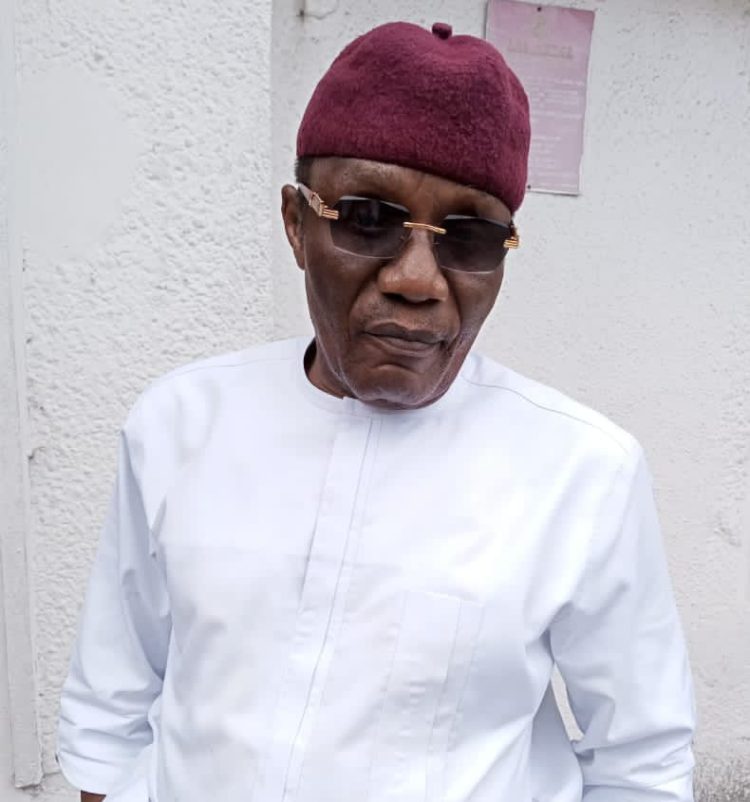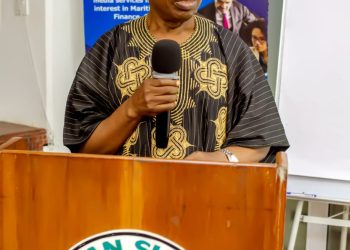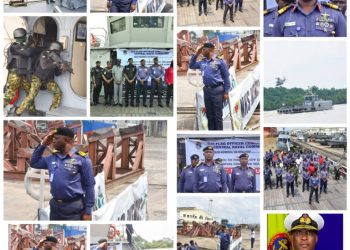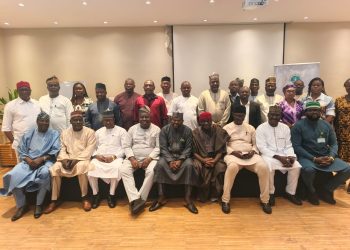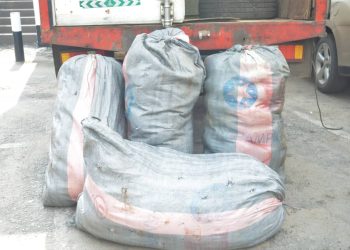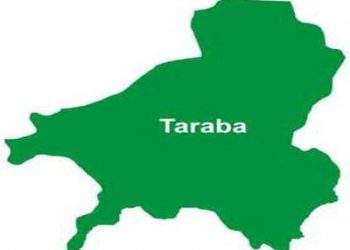IMPORTERS AND THEIR AGENTS ARE FACING MYRIAD OF CHALLENGES IN CUSTOMS CLEARANCE PROCEDURES
— Dr. Dike Austin Kelly
Veteran Maritime Practitioner, Chief Dr. Dike Austin Kelly has expressed frustration over numerous challenges faced by importers and their agents in Customs Clearance procedures.
Dr. Kelly, a household name in the industry enumerated major areas of concerns as he passionately made a case for maritime Practitioners, he further stated that Importers and their agents are going through hell as they are at the mercy of the Nigeria Customs Service.
He added that the harsh policies and procedures being churned out by the NCS are not doing the industry any good as they keep emasculating individual businesses and causing untold hardships to the citizens.
some of the challenges, according to Dr. Kelly are: Abandonment of Act No. 20 of 2003. This Act he said, provides for a New Method of Valuation of Goods in Nigeria based on the Transaction Value. The Act was signed by President Olusegun Obasanjo GCFR on July 10, 2003.
“The Act provides the following sequential order of valuation of goods imported into NIgeria:
1). Transaction Value Method which is based on the invoiced amount the Importer paid to the exporter.(2). Transaction Value of Identical Goods.(3) Transaction Value of Similar Goods.
4). Deduced Value based on the sale of the goods in the importing country.
5). Computed Value based on the cost of production, profits, etc.
6). Any Other Reasonable Means.
“The Nigeria Customs Service has opted for Method 6 which is ‘Option of Last Resort’. It’s this option that makes it mandatory for any 1×20′ container to pay a minimum of N5 million while 1×40,’ pays N10Million duty to the NIgeria Customs Service, no matter the content.”
The Veteran Maritime Practitioner did not only mention the challenges but made some recommendations as well.
In the recommendation, he advised the Nigeria Customs Service(NCS) to strictly abide by the provisions of Act 20 of 2003. His concerns were buttressed with a historical background:
“In 2008, the World Trade Organization Committee on Customs Valuation accepted, considered, ratified and circulated a communique dated July 23, 2008, at the request of the Delegation of Nigeria Customs Service which confirmed the adoption of Transaction Value of Goods as NIgeria’s national implementing legislation pursuant to Article 22 of the World Trade Organization Agreement on Implementation of Article VII of the General Agreement on Tariffs and Trade, 1994.”
“Nigeria Customs Service is aware of the Act but is deliberately sidelining it in the name of Revenue Drive/Revenue Generation.”
Next is
Hunting of duly cleared containers and general Cargoes by Federal Operations Unit of the Nigeria Customs Service.
Nigerian Importers are worried that as soon as a truck laden with imported goods drives up to the Tin Can bridge, Otto Woff and Alaba Express Bus Stops, it is waved down to stop by officers and men of the Federal Operations Unit of the NIgeria Customs Service and the driver is asked to present his clearance. Clearance here means evidence of the disc covering the ‘FOU SETTLEMENT’ paid to a named officer in the port before the cargo was released. Where the driver fails to produce the disc, he has to settle them on the spot or be taken to their Zonal headquarters where he would pay through his nose. His truck would also be detained for weeks and he would still have to bail his truck.
In his recommendation, he stated that
“FOU should operate a minimum of four miles away from the seaport Customs territory. It is indictment on the reputation of senior customs officers when cargos released by them are re-examined by junior officers of the Federal Operations Unit. It is also a sign of mistrust.”
“On Customs Licensing;
the fact that NIgeria Customs Service licenses Nigerian Customs Clearing Agents, examines and releases the cargo is an aberration. This is the main reason the agents cannot challenge the intimidation of any Customs Officers.
Again, more than 80% of Customs Clearance Licenses is owned by officers and men of the Nigeria Customs Service. These officers hugely compromise their integrity when they are the examination and releasing officers of the imports cleared by the licensed Customs Clearing Agencies owned by them.”
Dr. Kelly went further and recommended that issuance of Customs Clearance Licenses should be the responsibility of the Federal Ministry of Finance or the Council for the Regulation of Freight Forwarding in Nigeria (CRFFN). This according to him, would greatly reduce the current abuse of position and power by some unscrupulous officers and men of the NIgeria Customs Service.
Another is the need to Harmonize Maritime Agencies and the following scenarios were cited
1) NPA is in charge of the common user facility.
2) NIMASA is in charge of labour.
3). Licensed Customs Clearance Agents are under the Nigeria Customs Service, the issuer of the licenses.4). Nigerian Shippers’ Council is the Port Economic Regulator.
5). Council for the Regulation of Freight Forwarding in Nigeria is responsible for the professional training and development of the freight Forwarders.
7). Federal Ministry of Transport is in charge of the Maritime Institutions – NPA, NSC, NIMASA, NRC, etc. Management of the government agencies in the port industry is in the hands of various Government agencies and institutions. With these distortion, conflict resolutions become very difficult.
In his recommendation, he advised that
Government should review and harmonize the functions of its ministries, parastatals and agencies operating in the NIgerian Ports Industry for greater efficiency and effectivity.
On Destruction of International Trade Through Anti-Trade Fiscal Policies
He stated that the three Government fiscal policies which are removal of fuel subsidy, floating of the national currency, hike in exchange rate for Customs Valuation purposes – have crashed Nigeria’s international and national trades.
“In 2014, Nigerian Ports recorded fourteen million highest inflow of Twenty Feet Equivalent Units since its more than sixty years of existence. In 2023, Nigerian Ports received less than two and a half million TEUs. This is as a result of Anti-Trade Fiscal Policies of the Federal Government and human weakness on the part of officers and men of the NIgeria Customs Service.”
In his recommendation, he said that the Federal Government should review her Customs Exchange rate to encourage international trade and revive the NIgerian trade industry and the rapidly dwindling economy. Customs exchange rates should be fixed over a long period of time to help business planning and projection.
“The NIgerian Port Industry is the worst affected by the Federal Government fiscal policies and revenue drives and projections of the Nigeria Customs Service. More than 90% of the Nigerian bonded terminals have shut down. The remaining 10% are operating at less than 30% of their installed capacities. This is the proof, if proof were needed, that Nigerian Importers are being systematically downsized. International Trade (import and export) are global instruments of economic growth and development. Nigerian Federal Government should review her ANTI-TRADE policies and deliberately encourage international trade as a national survival strategy.”
On unbridled corruption among Officers and men of the Nigeria Customs Service, he stated that
“the Nigeria Customs Service is reputed for extortion. This extortion is encouraged by dubious Importers who cut corners believing that they would find their way out through compromising officers and men of the NIgeria Customs Service.
In his recommendation, Dr. Kelly advised that there should be a special tribunal or courts to try offenders – both Customs and Importers.
Again is the Non-inclusion of Nigerian Importers on Customs Board.
“To help the Federal Ministry of Finance and the Federal Government fully understand the happenings within the Nigerian Port Industry, cerebral and experienced Nigerian Importers should be appointed to the Nigeria Customs Service Board. Such members should constantly update the Board, the Ministry and the Federal Government on the happenings in the ports.”
He urged that more emphasis be laid on trade facilitation than revenue generation.
According to Dr. Kelly, “the Federal Government should pay more attention to trade facilitation rather than revenue generation. The latter makes them “cargo hunters” rather than trade facilitators.”
“In all these, until the Nigeria Customs Service is divested of the powers of the cargo examination and releasing officers as well as the licensing officers for the licensed Customs Agents, the issue of brazen corruption and extortion will continue to hit hard on the businesses of the NIgerian Importers and freight forwarders, and by extension, the NIgerian economy and the masses in general.” He stated.



